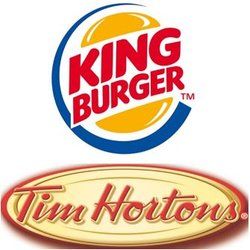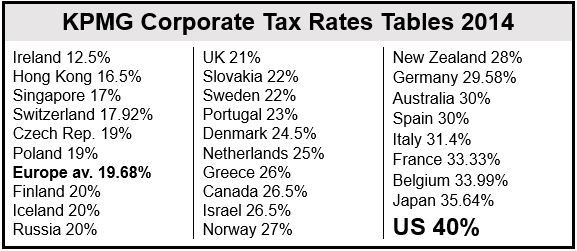A Burger King Tim Hortons acquisition deal worth $11.4 billion has been agreed, the two companies announced. The Florida-based multinational hamburger chain’s merger with the Canadian coffee and doughnut chain will create the third biggest fast-food chain in the world.
The deal was approved unanimously by the board of directors of both companies.
Tim Hortons stockholders will receive Can$65.50 (US$59.74) per share in cash and 0.8025 shares of the new company for each share they own.
The new entity, which will be 51% owned by 3G Capital, will have annual sales of approximately $23 billion and a market capitalization of $18 billion.
3G Capital, which is based in Rio de Janeiro and New York, acquired Burger King for $3.3 billion in 2010 and floated the company two years later, holding onto almost 70% of the stocks.
Berkshire Hathaway, Warren Buffett’s investment company, is putting $3 billion in preferred equity financing towards the deal, but will have no managerial control over the new company.
Burger King’s shares ended the day on Monday 19.5% higher, but declined by 4.32% on Tuesday after the announcement. Tim Horton’s shares, on the other hand, rose 19% on Monday and then another 8.47% on Tuesday.
Tim Hortons used to be part of Wendy’s, the American fast-food chain. In 2006, it was spun off as a separate company.
Tax Inversion
The United States has the highest corporate tax rate in the world. Several US-based companies have been trying to acquire foreign companies so that they can move their headquarters abroad and escape America’s punishing taxes.
Tax inversion means re-incorporating a company abroad in order to reduce the amount of taxes paid on income earned overseas.
Burger King and Tim Hortons said the new entity will be headquartered in Canada. At 26.5%, Canadian corporate tax is much lower than in the US (40%).
Business people globally cannot understand how the United States – the flagship of free enterprise and minimal government interference in the 20th century – became the bureaucratic, litigious, high-taxed nation it is today.
With the ever-growing risk of being sued by the authorities for not adhering to mountains of regulations, many companies and investors around the world are starting to seek out alternative nations in which to do business.
Warren Buffett, the second richest man in the US and a Barack Obama ally during his 2008 presidential campaign, has seriously dented the US President’s efforts to halt corporate inversions by backing this deal with his own money.
President Obama described corporate inversions as “unpatriotic”. Wouldn’t overhauling the US tax system, which has not been updated for several decades, and making it more business-friendly, be a better approach?
The US corporate tax rate is the highest in the world, even higher than in socialist France (Source: KPMG)
Comments by CEOs
Regarding the deal, Alex Behring, Executive Chairman of Burger King and Managing Partner of 3G Capital, said:
“By bringing together our two iconic companies under common ownership, we are creating a global QSR powerhouse. Our combined size, international footprint and industry-leading growth trajectory will deliver superb value and opportunity for both Burger King and Tim Hortons shareholders, our dedicated employees, strong franchisees, and partners. We have great respect for the Tim Hortons team and look forward to working together to realize the full potential of these two extraordinary businesses.”
Marc Caira, President and CEO of Tim Hortons, said:
“We are very proud of the great history of our organization and the progress we have achieved in creating value and delivering the ultimate experience for our guests. As an independent brand within the new company, this transaction will enable us to move more quickly and efficiently to bring Tim Hortons iconic Canadian brand to a new global customer base. At the same time, our customers, employees, franchisees and fellow Canadians can all rest assured that Tim Hortons will still be Tim Hortons following this transaction, including our core values, employee and franchisee relationships, community support and fresh coffee.”


